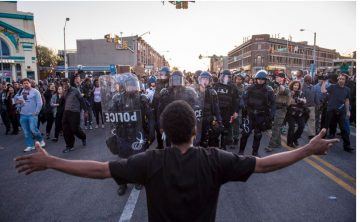On a Thursday afternoon in March 1973, 50 uniformed officers filed into a red-brick legislative building in the Maryland state capital, armed with stories of being wrongfully disciplined by highhanded police chiefs, gripes of low morale, and threats for lawmakers who didn’t agree to help them.
At stake was the “Law Enforcement Officers Bill of Rights” — a first-in-the-nation law that codified workplace protections for police officers far beyond those afforded to other government employees. They included giving officers a formal waiting period before they had to cooperate with internal inquiries into police conduct, scrubbing records of complaints brought against officers after a certain period, and ensuring that only fellow officers — not civilians — could investigate them.
It was not a controversial bill at the time, lawmakers say. But its impact would be profound.
Within four years, a Howard County police chief abandoned his call for public disciplinary hearings, citing the new law. A court ruled that an officer who was fired after using excessive force had to be reinstated and given back pay. And in 1977, a human relations commission in Prince George’s County was told it could not investigate police brutality allegations — a decision the county’s only Black council member at the time called a “slap in the face.”
For more than four decades, critics say, the Law Enforcement Officers’ Bill of Rights has been one of the biggest obstructions to police accountability, hindering investigations and shielding misconduct from public scrutiny.
 Rebecca Tan in The Washington Post:
Rebecca Tan in The Washington Post: Rebecca Tan in The Washington Post:
Rebecca Tan in The Washington Post: